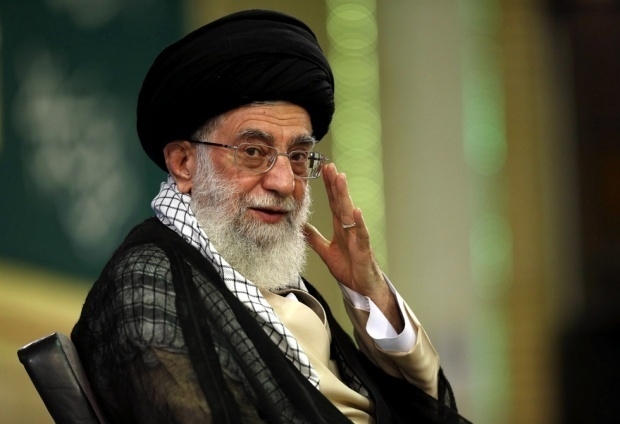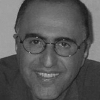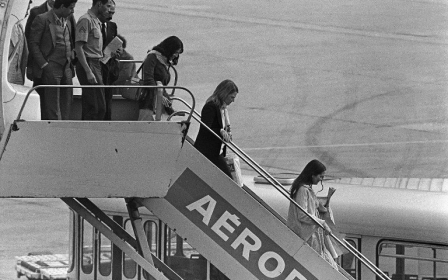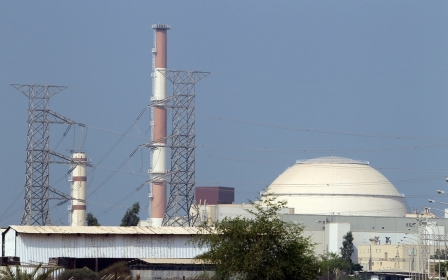The road to choosing Iran’s new leader

On 13 December, Akbar Hashemi Rafsanjani, former Iranian president and the leading figure of the moderates’ camp, made a rare comment regarding the Assembly of Experts. Rafsanjani said that the Assembly has “appointed a group to list the qualified people that will be put to a vote [in the assembly] when an incident happens”.
Developments related to the election of the leader’s successor are typically guarded with great secrecy. But Rafsanjani’s move manifested the intensification of the activities of the two competing currents – the moderates and the conservatives – to gain control of the next Assembly of Experts. While it should be noted that conservatives are divided into two factions, one more radical than the other, but both sides believe in maintaining the status quo.
In February 2016, Iran will hold simultaneous elections for the Assembly of Experts – the body of 88 jurists tasked with selecting the next Supreme Leader in the event Ayatollah Ali Khamenei passes away – and the parliament, or majlis. The outcome of the former elections could determine the trajectory of the country for decades. The outcome-determinative nature of the elections was recently discussed by Ahmad Khatami, a leading conservative figure and the cleric who leads Tehran’s Friday prayer.
Khatami once remarked that because “Ayatollah Khamenei is currently 74 years old and will be 82 in the next eight years some are thinking that the fifth [meaning next] Assembly of Experts may have to decide on the next leader". Also speaking to reporters on 21 December, the moderate Rafsanjani said that in these elections “our nation is getting ready for determining their fate for years to come".
In the past three decades, there have been at the public level cordial relations between Rafsanjani and Supreme Leader Khamenei. However, the two men have represented two competing schools of thought.
In Rafsanjani’s eyes “there is no expediency above people’s opinion". He argues that “attracting their [the people’s] satisfaction” is essential “for the longevity and stability of the country". He once remarked that “without people, even a godly government will not sustain and will not get anywhere".
As fair as this view may sound, it is paradoxical when placed in the context of Iran’s Islamic system. Conservatives ask what the political and ideological outcome of Iran would be if citizens, with no limitations, were free to vote for any candidate of their own choosing, including those who support secular views. If such candidates were to win, conservatives question, how could the system maintain its Islamic identity while the representatives of the people do not believe in the Islamic system?
In the conservative setting, this is where the Guardian Council would intervene. The Council is tasked with protecting the identity of the nezam (establishment) and its value system by vetting the candidates while elections are also held. The Guardian Council is composed of 12 members and has the power, among other things, to vet all candidates for president, parliament and the Assembly of Experts.
In August 2015, Iran’s moderate President Hassan Rouhani aimed to curb the vetting power of the Guardian Council by giving a speech in which he remarked: “We have no place in the country that wants to disqualify qualified and caring individuals who want to serve the country using their experiences, regardless of the faction from which they may come.”
Rouhani primarily based his argument on the constitution, the precise place where his argument is vulnerable to attack. The Guardian Council does have the authority to approve or disapprove the candidates.
In a 9 September speech, Iran’s leader brought up the issue and clearly rejected Rouhani’s assertion. “The Guardian Council is the eye of the nezam during the elections. ... The Guardian Council’s supervision over the elections is approbative and effective,” he remarked.
It is expected that, as elections near, Rouhani will intensify his maneuverings to impose pressure on the Guardian Council to make it harder for them to disqualify moderate candidates. However, Ayatollah Khamenei will not allow the unelected body’s authority to approve or reject the candidates to be stripped.
It is further expected that while the Council will approve a number of moderate candidates, conservatives will nevertheless shape the majority of the candidates. This will likely result in the conservatives dominating the Assembly of Experts. In the previous elections of the Assembly, 327 candidates were disqualified, and only 166 were approved by the Guardian Council. This meant that less than half of the candidates were approved and could run.
The Assembly bases its decision for choosing the leader on a number of qualifications as described in the constitution. Such qualifications include scholarship, justice and piety, prudence, courage, management skills, and the correct political and social perspicacity.
But conservatives have added their own criteria. First, the potential leadership candidate should be relatively young and energetic because the job is tough, and the death of the leader could be potentially destabilizing. Second, the future leader must be trusted by, and have the full approval of, Ayatollah Khamenei. Third, the candidate for the job should be commanding, self-confident, and be respected and obeyed by the different factions within the conservative camp from radicals such as the leadership of the Revolutionary Guards (IRGC) and the Basij militia, to moderate conservatives, like Followers of Velayat (Leadership), the majority faction in the parliament.
What if the conservatives win?
Putting all the above criteria into perspective, in a conservative-dominated Assembly, which is the likely outcome, two names are likely appear at the top of the list of the qualified candidates for the leadership job.
The first is Ayatollah Mahmoud Hashemi Shahroudi. The 67-year-old was born in the holy city of Najaf in Iraq. He moved to Iran only in 1979 during the Iranian revolution. Shahroudi is a grand ayatollah, the highest status in the Twelver Shia Islam, and was appointed by the Supreme Leader as the judiciary chief in 1999.
Because he is not born in Iran, reformists, who at the time had a grip on power, tried (to no avail) to block his appointment. After two terms working as the judiciary chief he stepped down in 2009. Shahroudi is at present the deputy chairman of the Assembly of Experts and a member of the Guardian Council. He is considered a moderate conservative.
The second candidate who can fulfill the aforementioned criteria is the current judiciary chief, Sadegh Amoli Larijani. The 55-year-old, also born in Najaf, Iraq, is a radical conservative. It is said that he has close ties with the IRGC and the intelligence apparatus. He was appointed as the judiciary chief in 2009 by Khamenei and has been working in that capacity since then.
Between Shahroudi and Larijani, the latter has a greater chance at being elected by the Assembly of Experts. This is the case because of his more commanding personality, his younger age, and his more radical worldview, which very much resembles Ayatollah Khamenei’s.
What if the moderates win?
A moderate win is the less likely scenario. However, if they succeed, the highest chance will belong to Hassan Khomeini, the 43-year-old grandson of the founder of the Islamic Republic Ayatollah Ruhollah Khomeini. He, together with Rafsanjani (whose approval by the Guardian Council is questionable) and Rouhani, can shape a powerful alliance in the Assembly around which the moderates’ faction can form.
- Shahir Shahidsaless is a political analyst and freelance journalist writing primarily about Iranian domestic and foreign affairs. He is also the co-author of “Iran and the United States: An Insider’s View on the Failed Past and the Road to Peace”.
The views expressed in this article belong to the author and do not necessarily reflect the editorial policy of Middle East Eye.
Photo: A photo of Iran Supreme Leader Ayatollah Khamenei (AFP)
Stay informed with MEE's newsletters
Sign up to get the latest alerts, insights and analysis, starting with Turkey Unpacked
Middle East Eye delivers independent and unrivalled coverage and analysis of the Middle East, North Africa and beyond. To learn more about republishing this content and the associated fees, please fill out this form. More about MEE can be found here.





